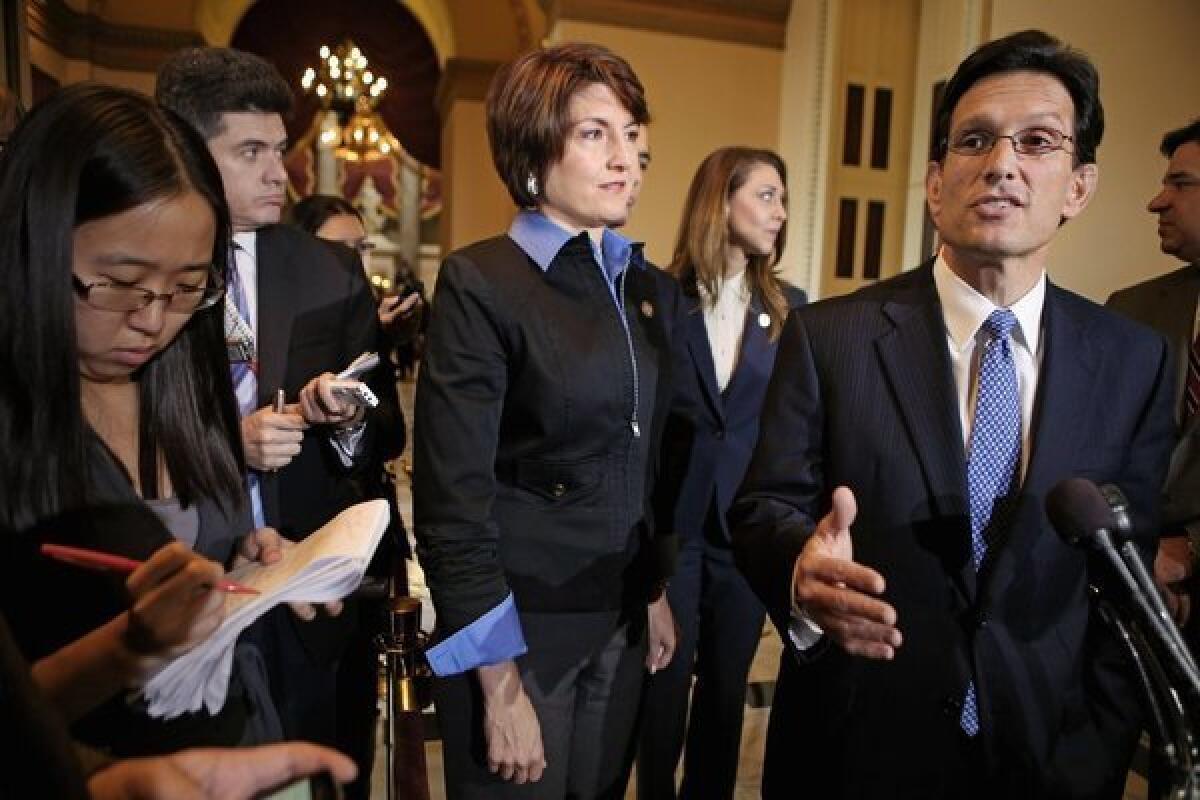A GOP pivot on immigration

- Share via
The partisan debate over how to reform the nation’s immigration system has been stalled in Congress for the better part of a decade. Republicans shoulder much of the blame for the most recent round of legislative gridlock. They have embraced an enforcement-only approach that ignores the fact that 11 million immigrants are already living in the country illegally and won’t “self-deport” (as Mitt Romney so memorably suggested), that some sectors of the economy such as agriculture rely almost entirely on illegal workers, and that an anachronistic visa process is making it harder for the United States to remain competitive in a global economy.
Thankfully, that may soon change. A growing chorus of influential Republican voices, including evangelical leaders and, most recently, former President George W. Bush, are calling for swift action on immigration reform. In the wake of November’s election, in which Latino voters cast their ballots overwhelmingly for President Obama, GOP leaders in Congress have signaled their willingness to negotiate. That’s welcome news, but finding a comprehensive fix for the deeply troubled system won’t be easy.
Last week, for example, the Republican-controlled House passed what’s known as the STEM visa bill, which would provide up to 55,000 green cards a year to foreign students graduating from U.S. colleges and universities with masters and doctoral degrees in science, technology, engineering and mathematics. And in the Senate, GOP leaders who once blocked the Dream Act of 2010 introduced a measure they called the Achieve Act that would give legal status to thousands of young undocumented immigrants who were brought to the United States as children.
The two measures are not perfect by any means. The STEM bill was blocked this week from moving forward in the Senate, where Democrats objected that although it would offer much-needed green cards to highly sought-after engineers and scientists, it would do so by eliminating another visa program that benefits less-educated people. Democrats are holding out for a bill that does not take a zero-sum-game approach to visas. And the Achieve Act is just a lite version of the Dream Act. It would offer legal status to fewer young people than the Dream Act and, even for those who did qualify, no path to citizenship.
Nevertheless, even if the proposals aren’t perfect and even if they don’t move forward, they indicate that Republicans are slowly recognizing that something must be done, and that more is needed than merely tighter border controls and harsher treatment of illegal immigrants. That may not seem like an enormous concession to some, but given that immigration has been on the back burner for years, it’s an important shift. That’s why the Obama administration and Democrats must be prepared to do their part too, and do it quickly, while Republicans are still assessing their losses.
The president must be far more involved than he was during his first term, when he offered flowery rhetoric and little else. He should present a road map for reform that not only calls for enforcing immigration laws at the border and in the workplace, but also provides a realistic plan for dealing with those undocumented immigrants who are already in the country.
Obama should also push for a guest-worker program that ensures growers a reliable source of workers while protecting the rights of those foreign farm laborers. And he should back Republican efforts to modernize the visa system to ensure that foreign graduate students aren’t forced to leave the country as soon as they’re handed a diploma.
Obama has said he can’t repair the nation’s immigration system alone. It now seems Republicans may offer a much-needed hand.
More to Read
A cure for the common opinion
Get thought-provoking perspectives with our weekly newsletter.
You may occasionally receive promotional content from the Los Angeles Times.









